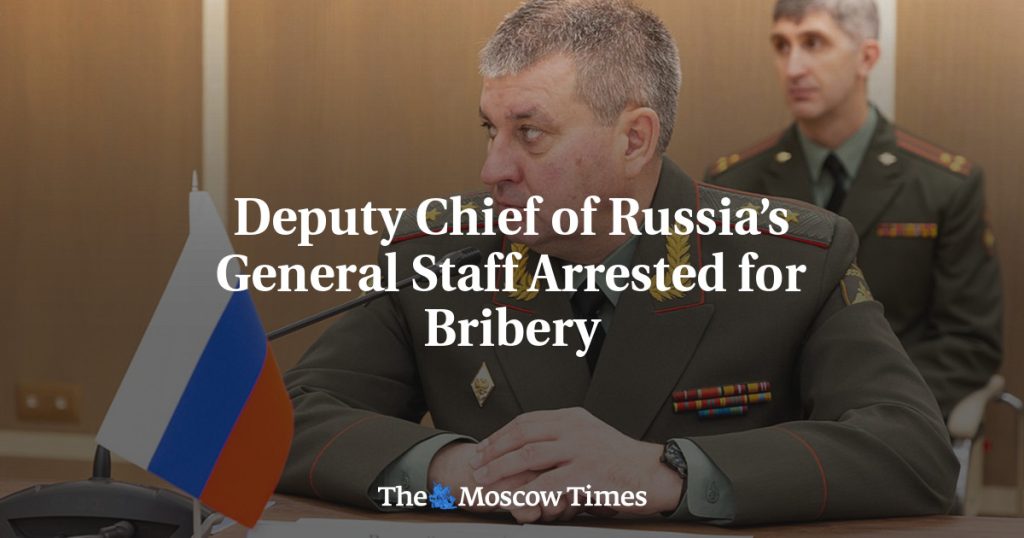Russia has recently arrested a Lieutenant-General, Vadim Shamarin, on corruption allegations, making him the third high-ranking military official to face fraud-related charges in the past month. Shamarin has been accused of accepting a bribe at an especially large scale while awarding state contracts, but no further details have been provided. The arrest of Shamarin follows the arrests of Yury Kuznetsov, the Defense Ministry personnel directorate chief, and Timur Ivanov, a former Deputy Defense Minister and ally of Sergei Shoigu, the current Russian Security Council chief. Additionally, an ex-commander who criticized military leaders for high casualty rates in Ukraine was arrested on Tuesday. These arrests are part of a crackdown within the Russian Defense Ministry.
Shamarin, who heads the Russian General Staff’s communications directorate, has been accused of unspecified “machinations,” according to reports. The arrests of high-ranking military officials in Russia coincide with significant advances made by Russian forces on the battlefield, particularly in Ukraine’s northeastern Kharkiv region. The leadership changes and arrests within the Russian Defense Ministry come as Russian forces continue their assault in Ukraine, marking their most significant advances in 18 months. The arrests highlight a broader effort within the Russian government to crackdown on corruption and restore integrity within the military ranks.
The arrests of high-ranking military officials in Russia suggest a broader campaign to target corruption within the Defense Ministry and hold those in positions of power accountable for their actions. The charges against Shamarin, Kuznetsov, Ivanov, and others indicate a shift towards greater transparency and accountability within the military establishment. These actions come amidst ongoing conflict in Ukraine, with Russian forces making notable advances on the battlefield. The arrests of top military figures underscore the Russian government’s commitment to combatting corruption and restoring confidence in the country’s military leadership.
The situation in Russia is further complicated by the recent branding of The Moscow Times, an independent news source, as a “foreign agent” by the Russian government. This move has been condemned as an attempt to silence independent journalism and infringe upon freedom of the press. Despite these challenges, journalists at The Moscow Times remain committed to providing accurate and unbiased reporting on Russia. They rely on support from readers to continue their vital mission and uphold the values of open and independent journalism. Support for organizations like The Moscow Times plays a crucial role in upholding press freedom and promoting transparency in society.















